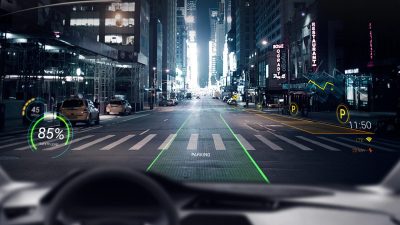Biometric health monitoring systems integrated into cars represent a cutting-edge advancement aimed at enhancing driver safety and well-being. These technologies utilize biometric data to monitor vital signs and physiological indicators in real-time, ensuring drivers remain alert, healthy, and capable behind the wheel. Here’s an exploration of biometric health monitoring in cars, its benefits, technologies involved, and implications for future automotive safety.
Understanding Biometric Health Monitoring
Definition
- Real-Time Monitoring: Utilizes sensors and biometric devices to track physiological parameters such as heart rate, blood pressure, and fatigue levels.
- Data Analysis: Analyzes biometric data to assess driver’s health status and alertness levels during driving.
Technologies Involved
- Biometric Sensors: Integrated into steering wheels, seats, or wearable devices to capture vital signs and biometric data.
- Data Integration: Syncs with onboard computer systems or mobile apps to analyze and display health metrics.
Benefits of Biometric Health Monitoring
Early Warning System
- Health Alerts: Detects anomalies or signs of fatigue, drowsiness, or medical emergencies in real-time.
- Emergency Response: Triggers alerts to emergency services or designated contacts in critical situations.
Enhanced Driver Safety
- Alertness Monitoring: Monitors driver’s attention and fatigue levels to prevent accidents caused by drowsy driving.
- Health Conditions: Provides insights into conditions like heart problems or stress, prompting proactive measures.
Personalized Driving Experience
- Customized Settings: Adjusts vehicle settings based on driver’s health data, such as seat position or cabin temperature.
- Comfort Optimization: Enhances comfort by adjusting lighting or audio based on stress levels or fatigue.
Applications of Biometric Health Monitoring
Drowsiness Detection
- Eye Tracking: Monitors eye movements and blink patterns to assess driver alertness and potential drowsiness.
- Heart Rate Variability: Analyzes heart rate variability to gauge stress levels and cognitive function.
Health Monitoring
- Blood Pressure: Measures blood pressure fluctuations to detect hypertension or health risks.
- Glucose Monitoring: Integrates with wearable devices to monitor glucose levels for diabetic drivers.
Personal Safety and Security
- Driver Authentication: Uses biometric data for driver identification and access control, ensuring vehicle security.
- Emergency Assistance: Automatically alerts emergency services and transmits location data in case of health emergencies.
Challenges and Considerations
Privacy Concerns
- Data Security: Ensures secure storage and transmission of sensitive biometric information to prevent unauthorized access.
- Regulatory Compliance: Adherence to privacy laws and regulations regarding biometric data collection and usage.
Technology Integration
- Compatibility: Ensures seamless integration with existing vehicle systems and interfaces without causing distractions.
- Reliability: Addresses challenges like sensor accuracy, signal interference, and calibration for reliable data capture.
Future Outlook
Advancements in AI and IoT
- Artificial Intelligence: Enhances predictive analytics and decision-making based on real-time biometric data.
- Internet of Things (IoT): Expands connectivity with smart devices and healthcare platforms for comprehensive health management.
Industry Adoption
- Market Growth: Increasing adoption of biometric health monitoring by automotive manufacturers to differentiate products and enhance safety features.
- Consumer Demand: Growing consumer awareness and demand for advanced safety technologies in vehicles.
Conclusion
Biometric health monitoring systems in cars represent a transformative leap towards safer and more personalized driving experiences. By continuously monitoring vital signs and physiological indicators, these technologies mitigate risks associated with driver fatigue, stress, and health emergencies on the road. As advancements continue and integration becomes more seamless, biometric health monitoring is poised to become a standard feature in modern vehicles, ensuring drivers remain safe, alert, and capable behind the wheel. Embracing these innovations not only enhances road safety but also revolutionizes the way we perceive and prioritize driver well-being in the automotive industry.



